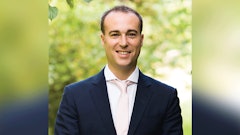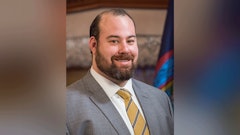
Christopher Jensen, co-founder and treasurer of the National Cannabis Roundtable (NCR), says the work the trade association has done on the Secure and Fair Enforcement (SAFE) Banking Act is just one example of the behind-the-scenes efforts the industry group does on a regular basis to push cannabis reform forward.
“It’s not just a trade association that monitors what’s happening on the Hill and reports back to their members. We’re doing a lot of the work,” says Jensen, who also is co-founder and CEO of Mana Supply Co., a Maryland-based medical cannabis company that has expanded to Missouri and Colorado. “I really liked the notion that we were going to be so involved in policy itself.”
Now that the SAFE Banking Act is on its way to the Senate, where there is hope it will finally pass after making its way through the House multiple times, Jensen explains what NCR is focusing on next.
Michelle Simakis: What has been the National Cannabis Roundtable’s (NCR) priority most recently?
Christopher Jensen: We’ve done a lot of work on the SAFE Banking Act over the past couple of years.
[NCR helped] legislators with all the background information… they needed to get to the place [the bill] is now. [With] bipartisan support, [the bill] very easily made it out of the House, and we do expect bipartisan support out of the Senate.
MS: What is the biggest hurdle for the SAFE Banking Act and also the Marijuana Opportunity Reinvestment and Expungement (MORE) Act, which passed the House in December?
CJ: You can’t eat the whale in one bite. The best way to get this done is incremental progress. The more complex the problems, and the more issues you throw at it, the more places there are to disagree The reality is for progress to go forward, we want to be incremental in that approach.
MS: What do you think is the greatest challenge holding the industry back right now, if you were to name just one?
CJ: The federal tax burden. 280E is obviously what holds the industry back the most. That tax burden makes it difficult for people without access to capital to operate and be entrepreneurial in this industry.
MS: Regulations can change quickly. Where have there been missed opportunities in the industry?
CJ: Everyone should have been paying attention to the [2018] Farm Bill and what happened with hemp and what that means for the cannabis side of the business.
Right now, you can buy CBD from your gas station down the street. And now that [extractors] have learned to convert CBD into delta-8 [THC], we really need to pay attention because delta-8 will affect what legislators think. If they see that delta-8, which is psychoactive, and they are watching kids come in and buy it at gas stations, we have to understand what that means for us.
MS: Do you consider delta-8 a threat? Is there an opportunity to regulate it better?
CJ: We formed a delta-8 committee inside of NCR. I don’t want to state NCR’s definitive position yet because that’s still being formed. But we need to understand the dangers, the consequences—we need to thoroughly understand the upside and the downside of regulation. We’ve gotten into a gray area. Is this an artificially derived cannabinoid or is it a naturally derived cannabinoid? We have obviously been in favor of regulation to the extent that it doesn’t choke the industry. Regulation keeps people safe.
NCR wants to take a measured and methodical approach in understanding this issue, and very quickly we will come up with our guidance and our suggestions for that, and we will only do it after we build consensus with the entire board. And we can take that consensus to the legislators and educate them and make sure that they understand, as well.

























